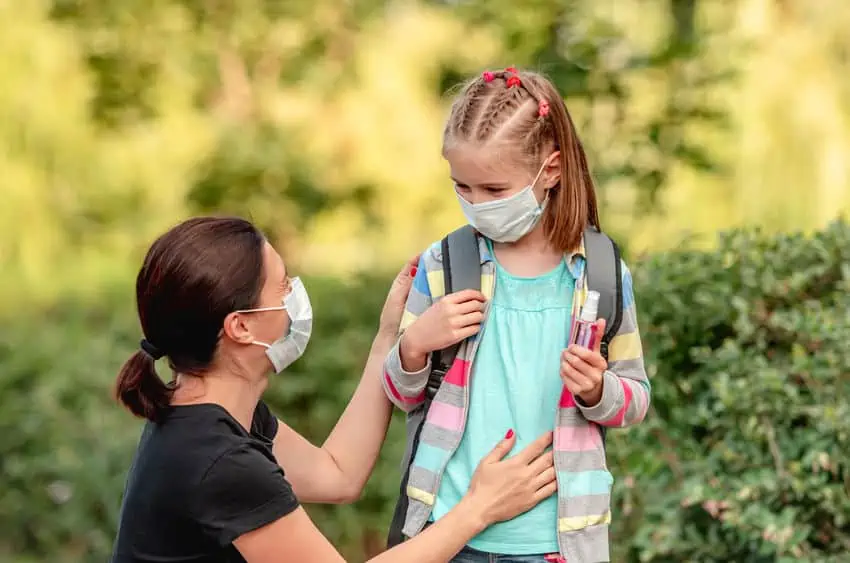In my career, I focus a good deal on helping those approaching retirement to prepare for life after their careers, when they get to stop saving and start enjoying the fruits of their labor. But I also work with some folks who are still decades away from leaving the workforce for good. In fact, one of the most common times I start working with younger people on their financial plans is when their children reach school age. For many of them, it means the end of or a great reduction in their daycare expenses, and they now have the ability to save and invest at a significantly higher level. But for many of these younger working parents who looked forward to kick-starting their retirement strategy, the coronavirus has thrown a wrench into their plans.
As numerous school districts across the country continue to opt for online virtual learning, parents who had anticipated sending their younger kids off to school are struggling with a new reality. They already spent the past spring cobbling together a way to work productively while their kids tried to learn from home. The struggle continued as summer camps shut down, daycares limited the number of kids they could watch, and many pools didn’t open. Now some of these parents who powered through these circumstances up to now are being called back to work in the office themselves. And many of those who can still work from home are at their wit’s end trying to juggle their jobs and support their kid’s education. It is giving a whole new and sometimes mind-boggling meaning to the phrase “work-life balance.” Parents are trying to simultaneously work their jobs, continue their children’s education, and cope with the guilt that neither is getting the full attention they need or deserve.
Folks, Jill and I get it. We have three teenage daughters, one a sophomore in college and our twins are juniors in high school.
Those who have been lucky enough to find some sort of daycare are seeing the already increased costs climb even further. Prior to the pandemic daycare expenditures in the US had already increased by over $10 billion from 2013 to 2018. Childcare and nursery school costs have outpaced the US CPI (Consumer Price Index) by a near double rate since the year 2000. Now daycares are being forced to add PPE and social distancing into the mix and this means passing those costs on to the parents. Even worse, the National Association for the Education of Young Children says that 40% of those that provide childcare may need to close permanently if they don’t get some sort of government relief.
Even the old standby of leaning on grandparents or older relatives for childcare may not be possible due to the risks that coronavirus poses to senior citizens. Some people are making the touch decision to leave the workforce, at least for now. Some folks who can slot their kids into daycare are having to defer financial goals that range from trying to get out of debt to buying their first home to funding a retirement financial plan. While the short-term financial effects are beginning to become apparent, the long-term impact on the economy may take years to recover from. Even more troubling is the unknown psychological cost to the young children. Online learning probably only goes so far in teaching young kids the academic fundamentals of reading and arithmetic. And that doesn’t even take into account the life skills that in-person schools help children develop, like socialization and self-confidence. In addition, some lower-income children will lose out on the nutritional benefits that their schools provide through free or subsidized meals.
The pandemic has given the country an unexpected problem with far-reaching impacts that we never anticipated. I don’t know what all the answers are, but I do believe that this is a significant problem that needs to be addressed. Both parents and childcare providers may need some sort governmental assistance, whether its direct payments or some sort of tax relief. As far as opening schools and returning to the normalcy of in-person learning, we need to move forward with a thoughtfully considered plan. We can’t sit on our hands until the virus runs its course, nor can we pretend that we don’t need to protect our younger children and their families from the impact of the pandemic. We must find a way to move forward that gets our young kids, their peers, and their teachers together and protects the physical and mental well-being of our children.
So to all of you hard-working parents out there who get out of bed and go to work, those who make sacrifices every day to see your families through this struggle, keep the faith and don’t give up. We are all in this together and I’m confident that life will go back to what will be a “new normal” again. We will come out of this with our sanity intact, I’m sure of it!
So as always – be vigilant and stay alert, because you deserve more!
Have a great week.
Jeff Cutter, CPA/PFS is President of Cutter Financial Group, LLC, an SEC Registered Investment Advisor with offices in Falmouth, Duxbury, Mansfield & Southlake, TX. Jeff can be reached at jeff@cutterfinancialgroup.com.
This article is intended to provide general information. It is not intended to offer or deliver investment advice in any way. Information regarding investment services is provided solely to gain a better understanding of the subject of the article. Different types of investments involve varying degrees of risk. Therefore, it should not be assumed that future performance of any specific investment or investment strategy will be profitable. Market data and other cited or linked-to content in this article is based on generally-available information and is believed to be reliable. Cutter Financial does not guarantee the performance of any investment or the accuracy of the information contained in this article. Cutter Financial will provide all prospective clients with a copy of Cutter Financial’s Form ADV 2A and applicable Form ADV 2Bs. Please contact us to request a free copy via .pdf or hardcopy. Insurance instruments offered through CutterInsure, Inc.







